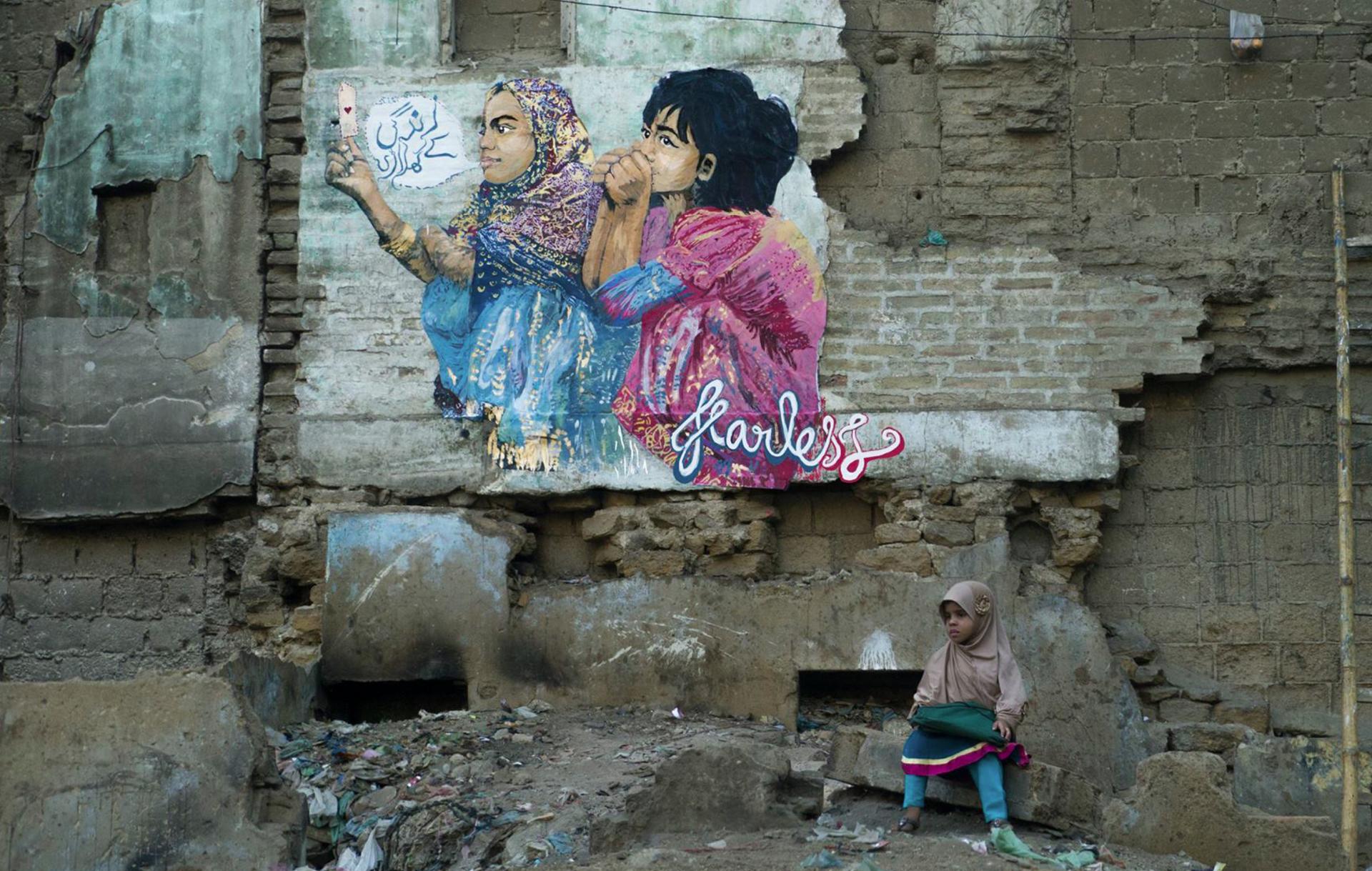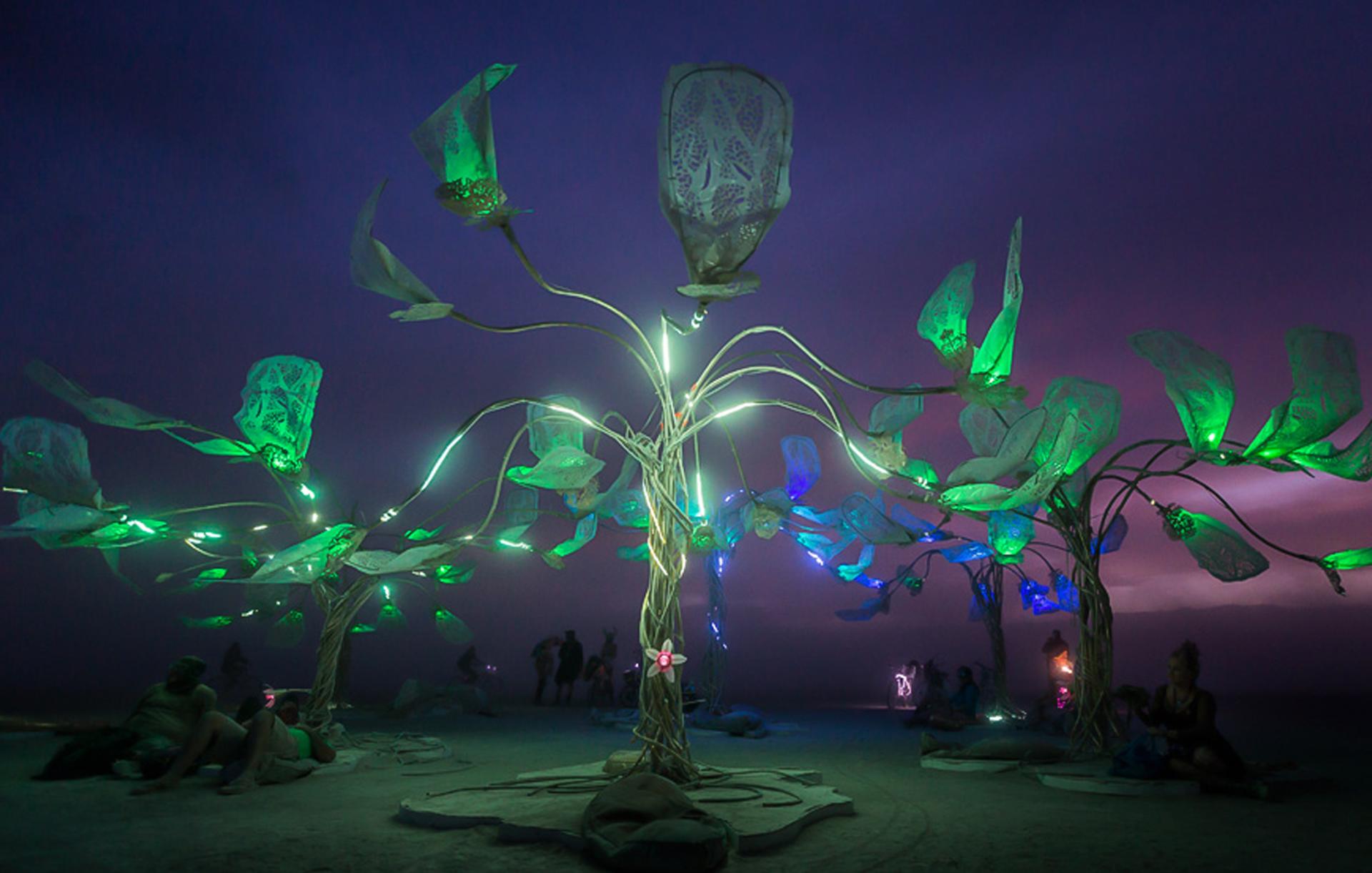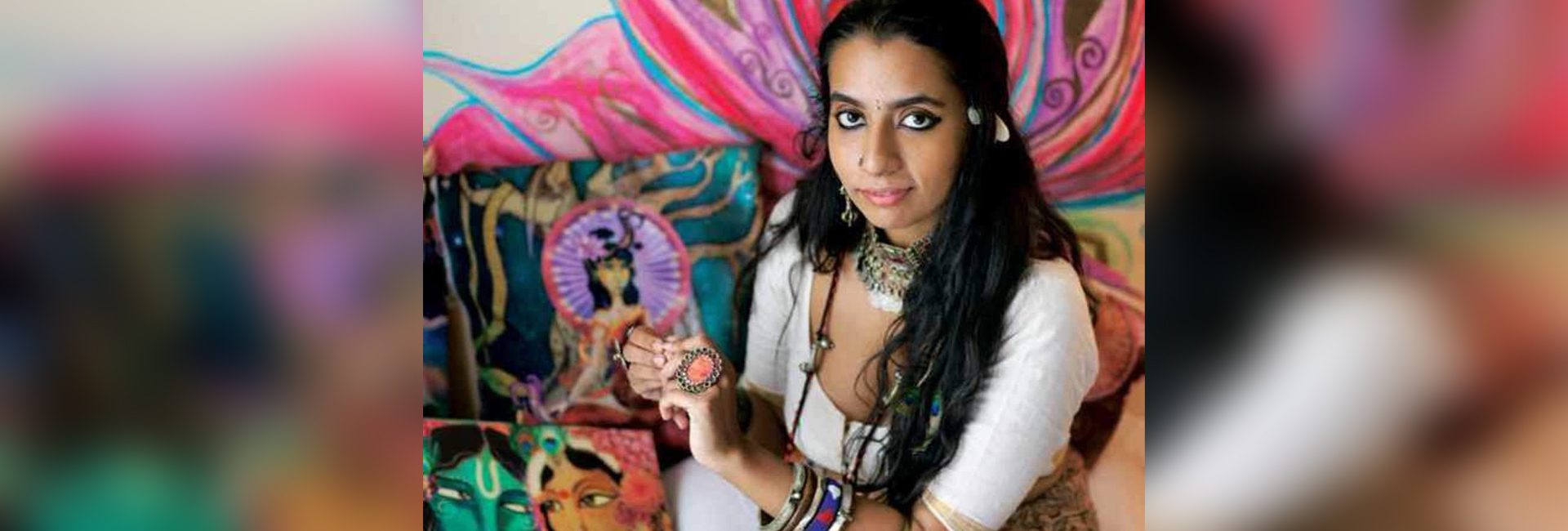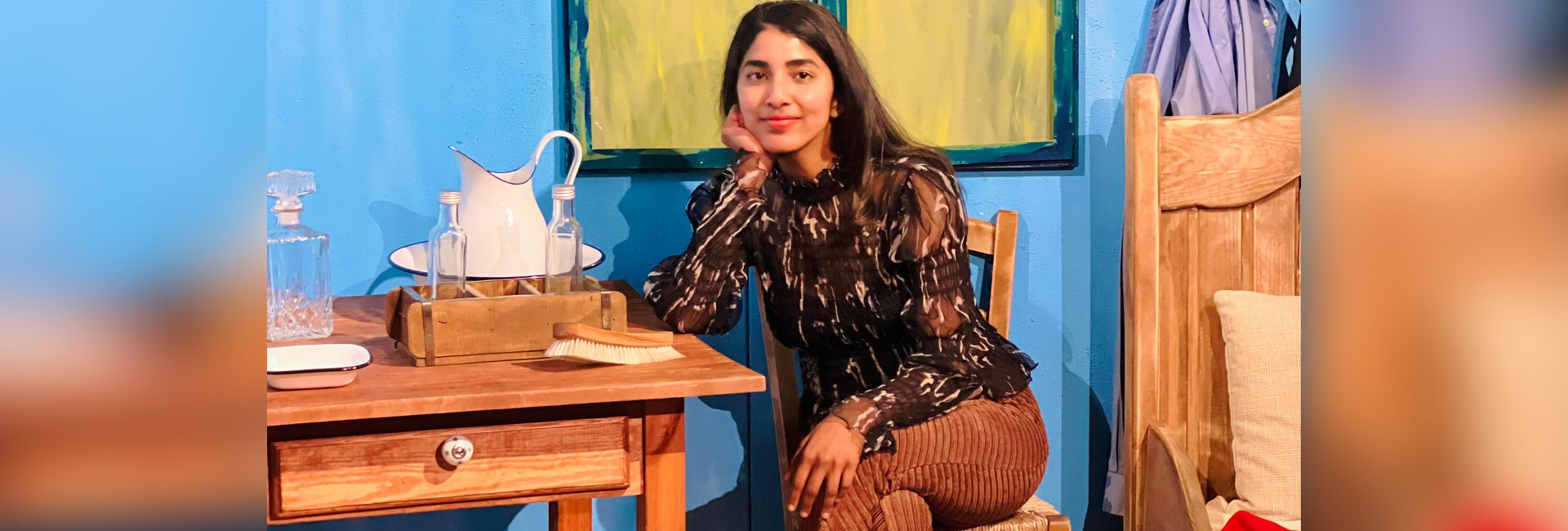(September 14, 2022) “It’s impossible, it can’t be done.” “Don’t go to Pakistan, it’s too dangerous.” Shilo Shiv Suleman, award-winning artist and founder of the Fearless Collective, always does it anyway. In late 2021, her installation, Temple, was showcased at Boundless Space a charity event by Sotheby’s and the Burning Man Project. The 40-kilo, wearable installation, crafted in bronze, which was finally auctioned for $56,700, is a connection to her paternal family’s history as well as an attempt to see the female body as a site of devotion.
This year, she branched out into the NFT space, at the Disruptors Techne show, conducted in parallel with the India Art Fair. The Fearless Collective did NFT drops of five posters by artists from India, Pakistan, Myanmar and Sri Lanka. She’s also a regular at the Burning Man festival at Black Rock Desert in Nevada – having been name the Lead Artist in 2014 and again in 2016, for Pulse and Bloom and Grove, respectively. Global Indian looks at the artist’s life and career, as she straddles two worlds – her personal art work which leans into magical realism and her art as social activism, done through the Fearless Collective.
Equating the female body with the divine has been the philosophy underlying Shilo’s work for several years now. When we met at her Bengaluru home back in 2016, Shilo emerged in a gold outfit, her forehead adorned with sacred ash and vermillion. It was her means of paying showing reverence to her body, just as one would do to an altar or a shrine, she informed me.

Temple, by Shilo Shiv Suleman. Photo: The Burning Man Journal
Talent born in turmoil
Born in Bengaluru, Shilo’s life at the age of 13, when her father went on a business trip to China and “vanished without notice,” she told The Hindu. Her mother, Nilofer, who is also an artist, suddenly found she had a family with two children to sustain and began teaching art. “At 14, I used to carry her basket of crayons and assist her. During the day she worked two jobs to sustain us, at night we painted.” When she turned sixteen, Shilo decided to take her mother’s middle name, Suleman. Today, Nilofer is a celebrated artist in her own right, her work in private collections around the world.
Shilo’s career as an artist began at 16, as a children’s book illustrator. By the time she turned 20, she had published 10 books. She leaned into magical realism, art, nature, culture, technology and the divine feminine, producing paintings, wearable sculptures, installations and public art.
The Fearless Collective
In 2012, when the horrific ‘Nirbhaya’ case shattered the country, Shilo decided it was time her art made a social impact. She founded the Fearless Collective, quickly becoming something of a revolutionary. She went from painting at home to taking her art to public spaces, using technology and Augmented Reality and creating large-scale installations around the world. That year, her talk as an INK fellow, made it to TED.com, fetching nearly a million views.
Starting out with a small team that included Tehani Ariyaratne and Gayatri Ganju, the Fearless Collective began as an online campaign. Women from around the world were given a platform to tell their stories. This included the Syrian refugees in Beirut, queer activists in South Africa, the women of the Shaheen Bagh protests and LGBTQ men from Rajasthan. “We conduct workshops for them and help them use art as a way to represent who they are and how they wanted to be perceived in this world,” Shilo told Social Story. “Through these workshops, we essentially make self-portraits in the street and create such monuments for that community.”

The Fearless Collective in Karachi. Photo: Shilo Shiv Suleman
In 2015, Shilo took the Fearless Collective to Pakistan. There, she painted on the wall of the National Bank of Pakistan in Lahore where she was interrupted by the director, who found he liked her work so much he allowed her to carry on. In Rawalpindi, the artist-activist made history, working with Khwaja Sera, the local transgender community, whose stories they depicted through public art.
The unsung heroes of the pandemic
When lockdowns were imposed across the country, the Fearless Collective took to the streets once more, this time to celebrate Bengaluru’s civic workers, the pourakarmikas. Every day, the pandemic notwithstanding, thousands of women would step out of home to clean the city, collecting garbage from homes and business and cleaning the streets.
When the lockdown was lifted, the Collective collaborated with Hasiru Dala, an NGO that works with these informal waste workers, to start ‘Essential’. The Fearless team painted a mural on the Utility Building, one of Bengaluru’s iconic landmarks, located on MG Road. It was a tribute to the dignity of the women who make the city liveable, responsible for collecting and segregating the 4000 tonnes of waste generated in Bengaluru every day.
“I have always said it’s high time that women go out on the streets, reclaim their public space and represent their stories, fearlessly,” Shilo told Outlook India. “In general, India needs more women on the streets, making way for critical social justice conversations with marginalised communities and transforming corners of fear and trauma into a canvas of beautiful art.” At the time of that interview, the Fearless Collective was a three-city tour across North India, starting in UP which was “reeling with the nightmarish news from a brutal gang rape of a Dalit woman in Hathras. We chose to speak of how women want to be touched.” They concluded in Jaipur, where they spoke to members from the queer community.

Grove, from Burning Man 2016, at Black Rock Desert, Nevada. Photo: Shilo Shiv Suleman
The Sotheby’s auction
Twelve years after her father’s departure, Shilo decided the time had come to seek him out once more. She went to his hometown in Kerala, where he was living after being compelled to return from China. “That afternoon in December 2019, I found him, but I also found myself,” she told The Hindu.
Her father’s family, who were Nambiars, had, for generations, been custodians to a temple in Kannur. They tended to the deity, Oorpazhachi Kavu, the temple of the Mother Goddess. “Temples are not just entered but also ceremonially worn,” Shilo told Indulge Express. “These shrines serve as a reminder that sacredness exists within our bodies.”
That’s how she conceptualised the piece, which took six months to execute. She did so through local artisans in Hawa Mahal, Jaipur. Although Shilo couldn’t be there in person her friend, the American singer Monica Dogra put together a performance – a procession of 25 women in red sarees, holding holy water in their hands. “I had estimated ito to be auctioned at 50,000 so the final deal exceeded my expectations,” she said, in the Indulge interview. “When I heard numbers were going up, I couldn’t contain myself. It was amazing to see the recognition that it got.”
- Follow Shilo on Instagram

